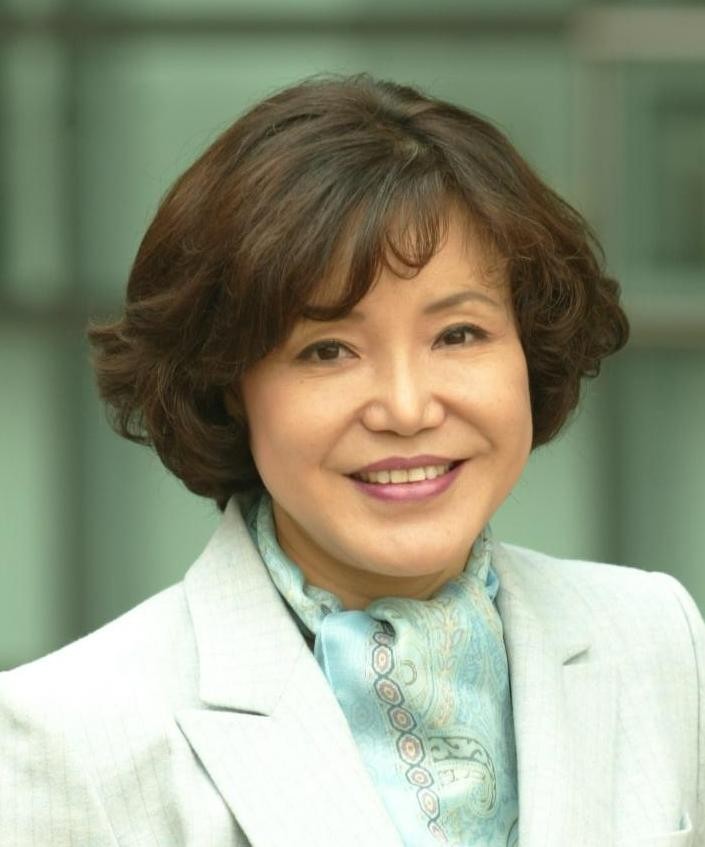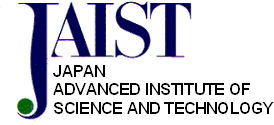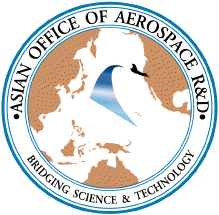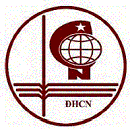| Introduction to PAKDD-05 |
| Welcome to PAKDD-05 |
The Ninth Pacific-Asia Conference on Knowledge Discovery and Data Mining
(PAKDD-05) is a leading international conference in the areas of data
mining and knowledge discovery. PAKDD-05 is a continuation of the PAKDD
series which carries the tradition we have had over the years in providing
high quality program to facilitate the research in the area of Knowledge
Discovery and Data Mining.
PAKDD will be held in Vietnam for the first time and at the center of Hanoi
(Melia Hotel, 18-20 May 2005). On behalf of the organizing committee and
programming committee of PAKDD-05, it is our great pleasure to welcome
you all to PAKDD-05 with its conference program, tutorials, workshops as
well as social events.
Honorary Chairs
Dang Vu Minh, President of Vietnamese Academy of Science and Technology
Hoang Van Phong, Minister of Science and Technology, Vietnam
Conference Chairs
Phan Dinh Dieu, Vietnam National University, Hanoi, Vietnam
Hiroshi Motoda, Osaka University, Japan
Program Committee Chairs
Ho Tu Bao, Japan Advanced Institute of Science and Technology, Japan
David Cheung, University of Hong Kong, China
Huan Liu, Arizona State University, USA
Local Organizing Committee Chairs
Luong Chi Mai, Institute of Information Technology, VAST, Vietnam
Nguyen Ngoc Binh, Hanoi University of Technology, Vietnam
Workshop Chair
Kyuseok Shim, National Korean University, Korea
Tutorial Chair
Takashi Washio, Osaka University, Japan
Industrial Chair
Wee Keong Ng, Nanyang Technological University, Singapore
Publicity Chair
Tran Tuan Nam, Japan Advanced Institute of Science and Technology, Japan
Publication Chair
Saori Kawasaki, Japan Advanced Institute of Science and Technology, Japan
Registration Chair
Nguyen Trong Dung, Institute of Information Technology, VAST, Vietnam
Hiroshi Motoda (Chair), Osaka University, Japan
David Cheung (Co-Chair), University of Hong Kong, China
Hongjun Lu (Treasurer), Hong Kong University of Science & Technology, China
Arbee L. P. Chen, National Chengchi University, Taiwan
Ming-Syan Chen, National Taiwan University, Taiwan
Jongwoo Jeon, Seoul National University, Korea
Masaru Kitsuregawa, Tokyo University, Japan
Rao Kotagiri, University of Melbourne, Australia
Takao Terano, University of Tsukuba, Japan
Kyu-Young Whang, Korea Advanced Institute of Science and Technology, Korea
Graham Williams, ATO, Australia
Ning Zhong, Maebashi Institute of Technology, Japan
Chengqi Zhang, University of Technology Sydney, Australia
Hiroki Arimura, Hokkaido University, Japan
Ho Tu Bao, Japan Advanced Institute of Science and Technology, Japan
Nguyen Ngoc Binh, Hanoi University Technology, Vietnam
Pavel Brazdil, University of Porto, Portugal
Tru Hoang Cao, Ho Chi Minh City University of Technology, Vietnam
Nicholas Cercone, Dalhousie University, Canada
Arbee L. P. Chen, National Chengchi University, Taiwan
Ming-Syan Chen, National Taiwan University, Taiwan
David Cheung, The University of Hong Kong, China
Vic Ciesielski, RMIT University, Australia
Vincent Corruble, University Paris 6, France
Jirapun Daengdej, Assumption University, Thailand
Honghua Dai, Deakin University, Australia
Manoranjan Dash, Nanyang Technological University, Singapore
AnHai Doan, University Illinois Urbana, USA
Guozhu Dong, Wright State University, USA
Nguyen Trong Dung, Institute of Information Technology, VAST, Vietnam
Peter A. Flach, University of Bristol, UK
Eibe Frank, University of Waikato, New Zealand
Joao Gama, University of Porto, Portugal
Minos Garofalakis, Bell Laboratories, USA
Sudipto Guha, University of Pennsylvania, USA
Dimitrios Gunopulos, University of California, Riverside, USA
Shyam Kumar Gupta, Indian Institute of Technology Delhi, India
Peter Haddawy, Asian Institute of Technology, Thailand
Jiawei Han, University of Illinois Urbana,USA
Doan B. Hoang, University of Technology, Sydney, Australia
Thu Hoang, University Paris 5, France
Achim Hoffmann, University of New South Wales, Australia
Se June Hong, IBM T.J. Watson Research Center, USA
Wynne Hsu, National University of Singapore, Singapore
Joshua Z. Huang, University of Hong Kong, China
Siu Cheung Hui, Nanyang Technological University, Singapore
San-Yih Hwang, National Sun Yat-Sen University, Taiwan
Jongwoo Jeon, Seoul National University, Korea
Rong Jin, Michigan State University, USA
Hiroyuki Kawano, Nanzan University, Japan
Gabriele Kern-Isberner, University of Dortmunt, Germany
Hoang Kiem, Vietnam National University HCM, Vietnam
Boonserm Kijsirikul, Chulalongkorn University, Thailand
Myoung Ho Kim, Korea Advanced Institute of Science and Technology, Korea
Yasuhiko Kitamura, Kwansei Gakuin University, Japan
Masaru Kitsuregawa, University of Tokyo, Japan
Rao Kotagiri, University of Melbourne, Australia
Marzena Kryszkiewicz, Warsaw University of Technology, Poland
Vipin Kumar, University of Minnesota, USA
Jonathan Lawry, University of Bristol, UK
Aleksandar Lazarevic, University of Minnesota, USA
Doheon Lee, Korea Advanced Institute of Science and Technology, Korea
Geuk Lee, Hannam University, Korea
Kwang Hyung Lee, Korea Advanced Institute of Science and Technology, Korea
Sang Ho Lee, Soongsil University, Korea
Yoon-Joon Lee, Korea Advanced Institute of Science and Technology, Korea
Jinyan Li, Institute for Infocomm Research, Singapore
Tsau Young Lin, San Jose State University, USA
Bing Liu, University of Illinois at Chicago, USA
Huan Liu, Arizona State University, USA
Hongjun Lu, Hong Kong University of Science and Technology, China
Luong Chi Mai, Vietnamese Academy of Science and Technology, Vietnam
Yuji Matsumoto, Nara Institute of Science and Technology, Japan
Hiroshi Motoda, Osaka University, Japan
Tetsuya Murai, Hokkaido University, Japan
Yoshiteru Nakamori, Japan Advanced Institute of Science and Technology
Huynh Van Nam, Japan Advanced Institute of Science and Technology, Japan
Douglas Newlands, Deakin University, Australia
Wee Keong Ng, Nanyang Technological University, Singapore
Zaiqing Nie, Microsoft Research Asia, China
Monique Noirhomme, University of Notre Dame de la Parix, Belgium
Masayuki Numao, Osaka University, Japan
Takashi Okada, Kwansei Gakuin University, Japan
Dino Pedreschi, Universita di Pisa, Italia
T. V. Prabhakar, Indian Institute of Technology Kanpur, India
Joel Quinqueton, University Montpellier 2, France
Rajeev Rastogi, Bell Laboratories, USA
Kenji Satou, Japan Advanced Institute of Science and Technology, Japan
Michele Sebag, University Paris Orsay, France
Rudy Setiono, National University of Singapore, Singapore
Kyuseok Shim, Seoul National University, Korea
Akira Shimazu, Japan Advanced Institute of Science and Technology, Japan
Masashi Shimbo, Nara Institute of Science and Technology, Japan
Simeon J. Simoff, University of Technology Sydney, Australia
Andrzej Skowron, Warsaw University, Poland
Nguyen Hung Son, Warsaw University, Poland
Takao Terano, Tsukuba University, Japan
Nguyen Thanh Thuy, Hanoi University Technology, Vietnam
Hiroshi Tsukimoto, Tokyo Denki University, Japan
Shusaku Tsumoto, Shimane Medical University, Japan
Anh Vo, University of Melbourne, Australia
Zhi-Hai Wang, Beijing Jiaotong University, China
Takashi Washio, Osaka University, Japan
Kyu-Young Whang, Korea Advanced Institute of Science and Technology, Korea
Graham Williams, ATO, Australia
Xindong Wu, University of Vermont, USA
Takehisa Yairi, University of Tokyo, Japan
Seiji Yamada, National Institute of Informatics, Japan
Takahira Yamaguchi, Keio University, Japan
Yiyu Yao, University of Regina, Canada
Tetsuya Yoshida, Hokkaido University, Japan
Philip S. Yu, IBM T.J. Watson Research Center, USA
Mohammed J. Zaki, Rensselaer PolyTechnology Institute, USA
Chengqi Zhang, University of Technology, Sydney, Australia
Bo Zhang, Tsinghua University, China
Ning Zhong, Maebashi Institute of Technology, Japan
Zhi-Hua Zhou, Nanjing University, China
Djamel A. Zighed, University Lyon 2, France
Keynote and Invited Speakers (slides in PDF are available now)
- Keynote Speech
SPEAKER
Prof. Tom Mitchell, Center for Automated Learning and Discovery, Carnegie Mellon University, USA.
TITLE
"Machine Learning for Analyzing Human Brain Function" (slide in PDF)
ABSTRACT
A major opportunity for knowledge discovery and data mining over the coming decade is to accelerate scientific discovery by providing new computer tools to analyze experimental data. Scientific fields from astronomy to cell biology to neuroscience now collect experimental data sets that are huge when compared to the data sets available just a decade ago. New data mining tools are needed to interpret these new data sets.
This talk presents our own research in one such scientific subfield: studying the operation of the human brain using functional Magnetic Resonance Imaging (fMRI). A typical fMRI experiment captures three-dimensional images of human brain activity, once per second, at a spatial resolution of a few millimeters, providing a 3D movie of brain activity. We present our recent research exploring the question of how best to analyze fMRI data to study human cognitive processes. We will first describe our recent successes training machine learning classifiers to distinguish cognitive subprocesses based on observed fMRI images. For example, we have been able to train classifiers to discriminate whether a person is reading words about tools, or words about buildings, based on their observed fMRI brain activation. We will then introduce an algorithm for learning a new class of probabilistic time series models called Hidden Process Models, and discuss their use for tracking multiple hidden cognitive processes from observed fMRI brain image data.
BIOGRAPHYTom M. Mitchell is the Fredkin Professor of Computer Science within the Center for Automated Learning and Discovery at Carnegie Mellon University. His research lies in the area of machine learning, data mining, artificial intelligence, and information fusion. Mitchell is Past President of the American Association of Artificial Intelligence (AAAI), author of the textbook "Machine Learning," and a member of the National Research Council's Computer Science and Telecommunications Board. He received various prizes for his researches. Mitchell's recent research has focused on machine learning approaches to analyzing human brain function based on fMRI data, and on machine learning for intelligent personal assistants. 
- Invited Talk 1
SPEAKER
Prof. Nada Lavrac, J. Stefan Institute, Slovenia.
TITLE
"Subgroup Discovery: Techniques and Applications" (slide in PDF)
ABSTRACT
This talk presents the advances in subgroup discovery and the ways to use subgroup discovery to generate actionable knowledge for decision support. Actionable knowledge is explicit symbolic knowledge, typically presented in the form of rules, that allow the decision maker to recognize some important relations and to perform an appropriate action, such as planning a population screening campaign aimed at detecting individuals with high disease risk. Different subgroup
discovery approaches are outlined, and their advantages over using standard classification rule learning are discussed. Case studies from medicine and functional genomics are used to present the lessons learned in solving problems requiring actionable knowledge generation for decision support.
BIOGRAPHYProf. Nada Lavrac is Head of the Department of Knowledge Technologies (since 2004), was Head of the Department of Intelligent Systems (in 2003) and Head of Intelligent Data Analysis and Computational Linguistics research group (in 1999-2003) at the Department of Intelligent Systems, and researcher of J. Stefan Institute, Ljubljana, Slovenia (since 1978). Her main research interest is machine learning and data mining, in particular inductive logic programming and intelligent data analysis in medicine. She is coauthor or coeditor of several books "ARDIO: A Study in Deep and Qualitative Knowledge for Expert Systems" (The MIT Press 1989), "Inductive Logic Programming: Techniques and Applications" (Ellis Horwood 1994), "Relational Data Mining" (Springer 2001), "Intelligent Data Analysis in Medicine and Pharmacology" (Kluwer 1997), and many research papers. In 1984 she was in a group of researchers who were awarded a national prize for research excellence, in 1997 she was awarded the Ambassador of Science of Slovenia prize. 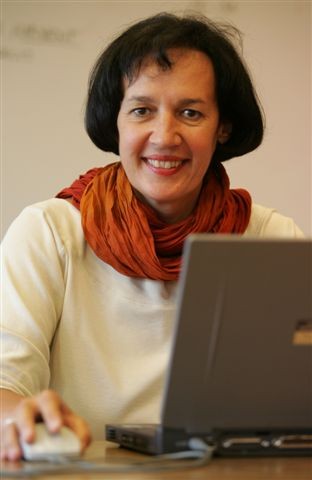
- Invited Talk 2
SPEAKER
Unna Huh, President of Information and Communications University, Korea
TITLE
"IT development in the 21st Century and Its Implications" (slide in PDF)
ABSTRACT
This talk discusses general IT development in the 21st century and its positive and negative effects. It also talks about Korea's IT development and makes suggestions for Korea's s further advances in IT. The three keywords to describe the IT development in the 21st century are digitalization, convergence, and ubiquitous revolution.
This IT development has presented new opportunities for our society, corporations and individuals while posing a threat to us. That is, IT revolution may dramatically improve the quality of human life and allow amazing degree of comfort in our lives, but like a double-edged sword, IT may also be misused and have disastrous impacts on our daily lives, such as invasion of privacy, leakage and abuse of personal information, and hacking. In dealing with these problems, technological advances alone may not be sufficient. There is a need for innovative education regionally and worldwide to cultivate wisdom in U-citizens so that they can use the modern convenience of IT with strong ethics. We also need to establish new laws and societal systems appropriate for the ubiquitous era.
BIOGRAPHYProfessor Unna Huh is President of Information and Communications University, Korea. She received her BA from Seoul National University in English language and Literature, MS and PhD from Florida State University in Library and Information Science and Instructional Technology. She held various positions in academic from some institutions and leadership in universities and associations. She is currently also Republic of Korea's majority Uri Party and former National Assembly member. She had a distinguished career in Information Technology and tertiary education.
